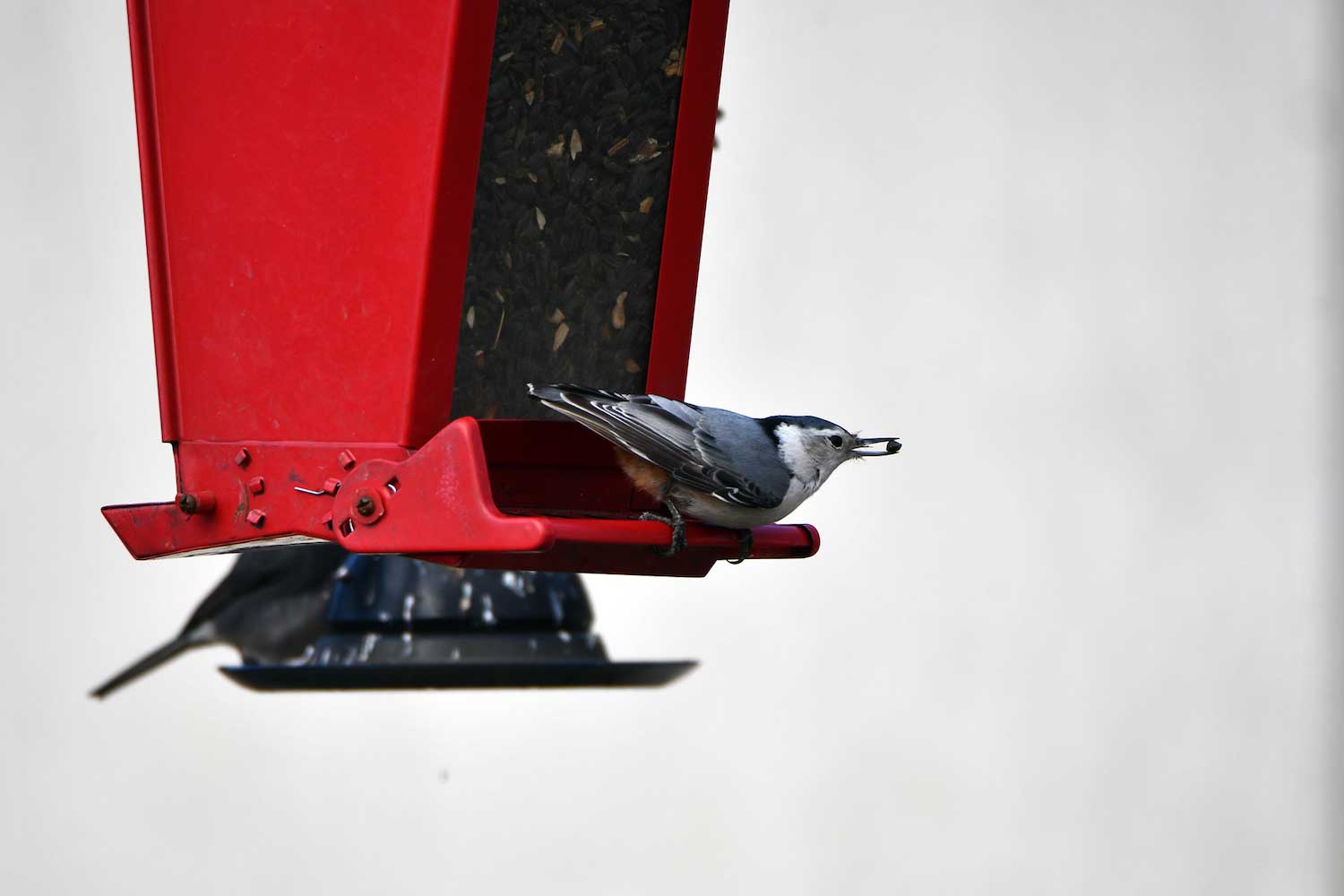Love feeding the birds? Keep them healthy with regular feeder cleanings

If you have bird feeders in your yard, you probably know birds will flock to a steady and predictable food supply. But keeping your feeders stocked is only half the equation when it comes to keeping the birds happy and healthy. In addition to keeping the food coming, you need to clean your feeders regularly too.
Bird feeders are a place where birds can have close encounters with birds they otherwise wouldn't, which means they can be a place where diseases are transmitted among birds. This is why regular cleanings should be part of your routine maintenance and upkeep.
Feeders should be cleaned about every two weeks, but more frequently during wet weather or during periods of heavier than usual use, the Cornell Lab of Ornithology advises. To clean your feeders, first take them completely apart and then hand wash them or put them in your dishwasher if it's safe to do so. You can use hand soap and hot water, but another good and safe choice is making a diluted bleach solution with 1 part bleach for every 9 parts water. Make sure to rinse your feeders thoroughly and allow them to dry completely before refilling and rehanging them.
Hummingbird feeders should be cleaned and maintained differently than seed feeders. For starters, the sugar water should be changed every three to five days so it doesn't get moldy or ferment, both of which can be harmful to birds, the Cornell Lab reports. During particularly hot weather, the water should be changed more frequently.
Feeders for hummingbirds should be cleaned weekly, but don't use soap or detergents. Instead, opt for hot water and a bottle brush for weekly cleanings, Cornell Lab advises. If you need a deeper cleaning, use a diluted bleach solution (no more than 1 part bleach to 9 parts water) and ensure the feeders are thoroughly rinsed and air dried before reusing them.
If you have discovered dead birds in your yard, take your feeders down for a few weeks and clean up under and around your feeders. Before putting your feeder back up, make sure they have all been thoroughly cleaned, Mass Audubon advises.
One last tip: If you like having avian visitors in your yard, consider spreading your food out among several different feeders, the Audubon Society advises. Similarly, if birds are fighting for space at your feeder, think about adding more and spacing them out in your yard. Since more feeders give the birds more room to spread out, it also prevents them from spreading illnesses through direct contact.
